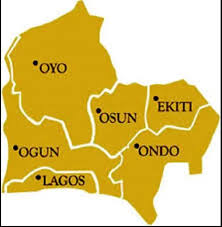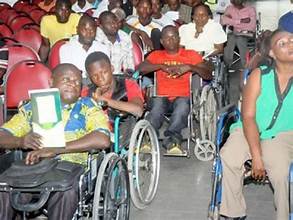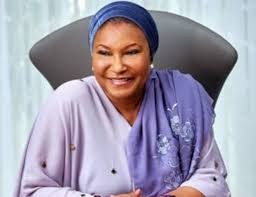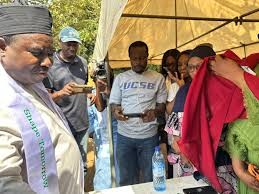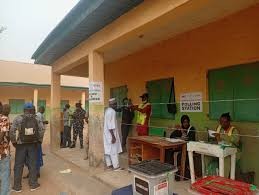The quest for regional Development Commissions went full circle on Thursday when the Senate passed a bill to establish the South West Development Commission. The bill passed a third reading on the Senate floor after Senator Shehu Kaka Lawan, chairman committee on special duties, presented a report. The bill will be transmitted to the President
The quest for regional Development Commissions went full circle on Thursday when the Senate passed a bill to establish the South West Development Commission. The bill passed a third reading on the Senate floor after Senator Shehu Kaka Lawan, chairman committee on special duties, presented a report. The bill will be transmitted to the President for assent after it is harmonized with the House of Representatives.
If President Bola Ahmed Tinubu signed it into law, it is expected to address infrastructural deficits and tackle ecological problems in the southwest geo-political zone. The upper legislative chamber had earlier passed bills to establish the North West Development Commission, North Central Development Commission, and South East Development Commission in addition to the North East Development Commission and the Niger Delta Development Commission.
“The intents and purposes of the bill are well structured for the socio-economic development of the south-west,” said Senator Lawan who also stressed that if established, it will be like other development-driven commissions established on a zonal basis. “It will receive funds from the federation account, donations from development partners, etc to address infrastructural deficits and tackle ecological problems in the region”, he said.
Analysts are divided on the rationale for the establishment of the Development Commissions across the six geo-political zones. Prof. Yusuf Zoaka, former Dean of, the Faculty of Social Sciences and International Relations, University of Abuja has, however, identified five political and seven economic advantages the zonal development commissions could engender for the different zones.
According to him, the geo-political zonal Commissions could promote Regional Development by having development tailored to each zone, and regional issues such as infrastructure, education, and healthcare can be addressed more effectively. This fosters a sense of inclusion and regional equity.
This could strengthen national unity by addressing the unique needs and aspirations of each zone, the commissions can reduce feelings of marginalization and promote a more unified national identity. In addition, it could lead to decentralization of Power: Development commissions allow for a more localized governance structure, ensuring that political decision-making can reflect the interests of local populations more directly.
Also, the university don said it could help in the area of conflict mitigation stressing that many regions in Nigeria have been plagued by resource-related conflicts or insurgencies (e.g., the Niger Delta and the North East). He said development commissions focused on these areas can create policies aimed at resolving underlying grievances and tensions. Also, it would engender increased representation by providing political leaders and stakeholders from the respective regions a platform to advocate for their needs, ensuring balanced political representation across Nigeria’s diverse ethnic and regional groups.
The economic advantages, Prof. Zoaka enumerated include balanced economic growth, job creation, infrastructure development, resource allocation and management, economic diversification, improved investment climate, and poverty reduction. He posited that rather than see the establishment as competition for resources, “the commissions will promote development rather than negative competition. However, it will be good for the commissions to have more leverage particularly to allow some regional discussions and equal spread in projects in zones that have relative peace”.
The Executive Director of Make A Difference Initiative, Dr. Lemmy Ughegbe, an Abuja-based development analyst opined that the establishment of regional development commissions is expected to enhance security by providing alternative livelihoods, while better policies will address local demands for social services.
“The commissions are anticipated to foster social cohesion and facilitate partnerships with national and international stakeholders, contributing to equitable growth and regional stability”, he said.
For Prof. Abdelrasaq Na-Allah of the University of Abuja, regional development initiatives can help facilitate targeted development in areas of special needs and advantages that are localised to a region, stressing that it can also help facilitate the development of regional infrastructures such as road, rail, power, etc, that connect constituent states and serve regional needs.
“Investment attraction is another area where impact can be felt as resources can be mobilized within the region to present a premium case or incentive that would otherwise have been impossible without such a concerted effort.
“Spilling over from all these possibilities is the advantage of job creation that can accrue to the region. As regional projects are implemented, new jobs and opportunities are created for the working population of the region to take advantage of”, adding that “politically, issues of representation, decentralisation, conflict resolution accountability, and good governance can be positively enhanced when states come together to function under the umbrella of a regional initiative”.
Prof. Na-Allah said the development promises of a regional development framework can be likened to the advantages experienced under the system of regional government that was witnessed in this country immediately after independence. It would be recalled that as regional leaders compete with one another in the race to engender development within their respective regions, projects were initiated, resources were mobilised and gains in the form of growth and development were realised.
Dr. Austin Eigbe, an Abuja-based Development Communication Specialist said: “From the ugly experiences we have had with the already established development commissions like constituency or zonal projects, they’re cesspool for corruption”.
The memory of Nigerians is still fresh with the ugly revelations of grand looting of funds that oozed out of the House of Representatives Committee on NDDC oversight probe of the operations of the Niger Delta Development Commission where a top official of the Commission collapsed when confronted with alleged fraudulent activities in the Commission and how a member of the NDDC House of Representatives Committee ordered a representative of the Commission to “off the mic! Off the mic”, to prevent the official from exposing the involvement of a legislator in the looting of the Commission.
The preponderance of opinions is that with proper vision and focused leadership, the development commissions would bring positive benefits to the regions. They will also foster deeper integration and collaboration among the states in the regions. Some have also pondered that they could be pegs for the restructuring of Nigeria towards a return to true federalism where the regions are strong and take more responsibility than the federal government.

